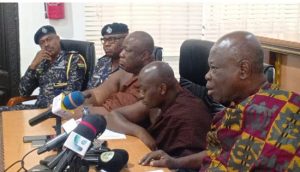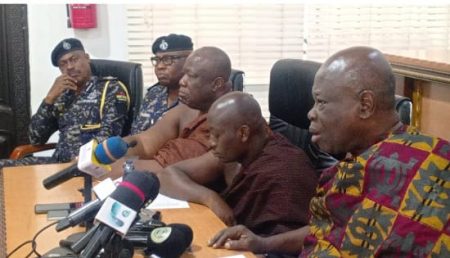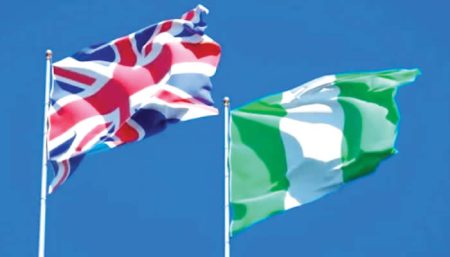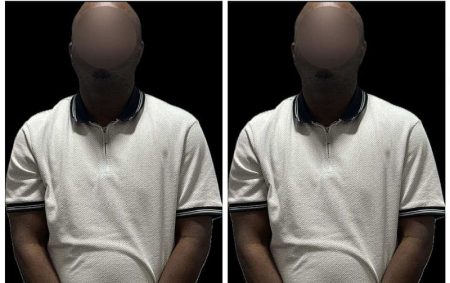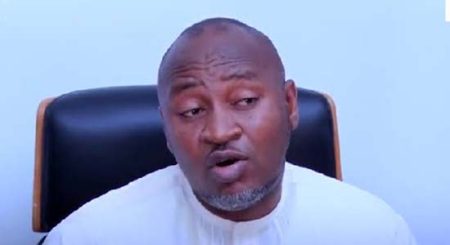The political landscape of Nigeria witnessed a significant event on Friday as Bala Mohammed, the Governor of Bauchi State and Chairman of the Peoples Democratic Party Governors’ Forum, hosted Peter Obi, the presidential candidate of the Labour Party, at the Bauchi Government House. This meeting, ostensibly a courtesy call by Obi, quickly transformed into a platform for discussing the future of Nigerian politics, the potential for opposition unity, and even a subtle attempt at political persuasion. The backdrop of the 2027 general elections loomed large, adding weight to the discussions and pronouncements made by both leaders.
Mohammed, in his address to journalists, emphasized the critical need for opposition parties to unite ahead of the 2027 elections. He stressed that the present administration’s perceived shortcomings, including what he described as a lack of budgetary planning and a focus on politics over governance, necessitate a united front from the opposition. He called for the PDP, ADC, and other parties to coalesce their interests for the benefit of the Nigerian people. He went further to extend an invitation to Obi, urging him to return to the PDP, portraying it as his rightful political home. This appeal, while seemingly impromptu, underscored the PDP’s desire to consolidate its position within the opposition and potentially regain its former dominance.
Mohammed’s call for unity wasn’t solely based on political strategy. He highlighted the prevailing atmosphere of “hunger and anger” among Nigerians, expressing concern about the potential for disruptive movements if these issues remain unaddressed. This acknowledgment of the public sentiment painted a picture of a nation yearning for change and stability, and indirectly positioned the opposition as the potential source of that change. His comments also served as a subtle critique of the current administration, suggesting that their policies have not adequately addressed the needs of the populace.
Obi, for his part, articulated his reasons for being in Bauchi, citing his engagement with youths in colleges of health and Almajiris (Islamic schools). He expressed satisfaction with the potential he observed in these future leaders, offering a glimpse into his focus on youth development and education. He also commended Governor Mohammed for his work in the education sector, a gesture of goodwill that transcended political affiliations. This focus on education, albeit a common theme in political discourse, highlighted the importance of investing in human capital for the future of the nation.
Responding to questions on the broader political landscape, Obi advocated for a shift in the paradigm of Nigerian politics. He championed a move towards a politics of development, competence, capacity, and compassion, emphasizing the need for leaders to prioritize the welfare of the people. This vision, presented as a departure from the status quo, resonated with the calls for change and good governance, implicitly contrasting his approach with the perceived inadequacies of the current administration. He reframed the purpose of political alliances, arguing that they should not be about power grabs but rather about facilitating positive change and development. This perspective, emphasizing collaboration over competition, offered a refreshing perspective on the often-fractious nature of Nigerian politics.
Beyond the political rhetoric, Obi’s visit also included a philanthropic dimension. He donated a total of N15 million to two educational institutions in Bauchi: N10 million to Malikiya College of Nursing Sciences and N5 million to Intisharu Islamic and Quranic Memorisation School. During his donation to the nursing college, he highlighted the crucial role of nurses in the healthcare system, emphasizing their importance even above doctors. This gesture, while charitable, also served to reinforce his focus on education and healthcare, key sectors often neglected in national development.
The meeting between Mohammed and Obi represents more than just a courtesy call; it symbolizes the dynamic and evolving nature of Nigerian politics. The call for opposition unity, the subtle political maneuvering, and the emphasis on addressing the needs of the Nigerian people all point to a growing awareness of the need for change and a potential realignment of political forces in the lead-up to the 2027 elections. The undercurrent of public dissatisfaction with the current administration creates a fertile ground for opposition parties to capitalize on, and this meeting, however symbolic, could be a harbinger of future collaborations and shifts in the political landscape.
The underlying tensions and potential alliances hinted at during this meeting suggest a fluid political landscape. The emphasis on the 2027 elections underscores the forward-looking nature of the discussions, indicating that political strategizing is already underway. The interplay between these two prominent figures, representing different parties but sharing a common platform to discuss national issues, offers a glimpse into the complexities and possibilities of Nigerian politics.
The focus on youth engagement, education, and healthcare further emphasizes the need for a more holistic approach to governance, moving beyond mere political posturing to address the fundamental needs of the population. The acknowledgement of public discontent and the call for a more compassionate and competent leadership style reflect a growing demand for accountability and effective governance. The meeting, therefore, serves as a microcosm of the larger political discourse in Nigeria, reflecting the aspirations and anxieties of a nation on the cusp of change.
The donations made by Obi, while seemingly separate from the political discussions, add another layer of complexity to the narrative. They can be interpreted as a demonstration of his commitment to education and healthcare, but also as a strategic move to build goodwill and connect with the local community. This blending of philanthropy and politics is a common phenomenon, but it also raises questions about the motivations behind such acts and their potential impact on the political landscape.
The overall tone of the meeting, despite the underlying political undercurrents, was one of cordiality and mutual respect. This suggests a potential for future collaborations and a willingness to transcend party lines for the greater good of the nation. However, the true test of these pronouncements will lie in the actions taken in the coming years, as the political landscape evolves and the 2027 elections draw closer. The meeting, therefore, serves not as a conclusion, but as a starting point for further dialogue and potential realignments in the pursuit of a better Nigeria.
The emphasis on a “politics of development” suggests a shift away from the often-divisive rhetoric that has characterized Nigerian politics in the past. The call for competence, capacity, and compassion points towards a desire for a more effective and empathetic leadership style, one that prioritizes the needs of the people above political expediency. This resonates with the growing demand for good governance and accountability, reflecting a desire for a more transparent and responsible political system.



